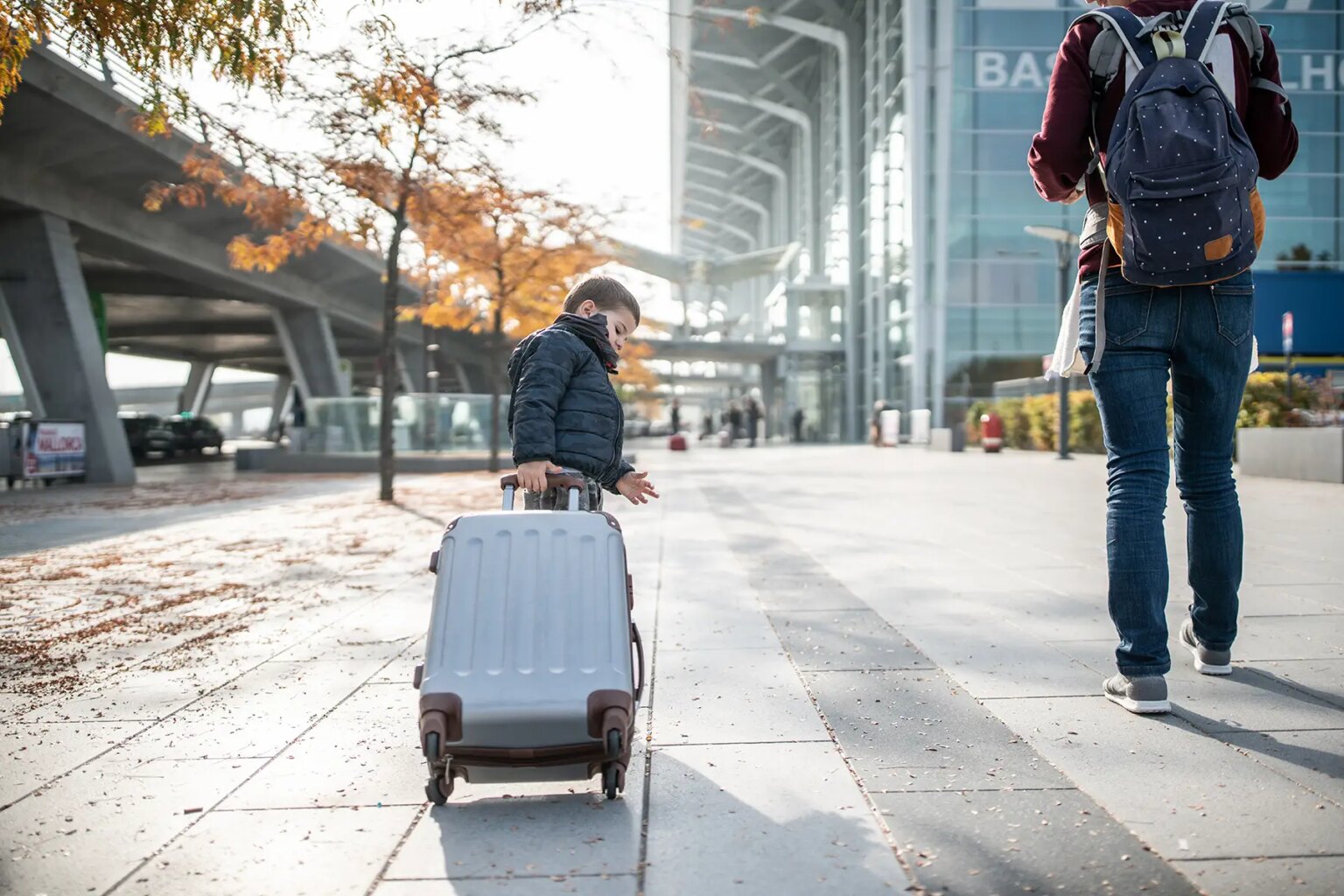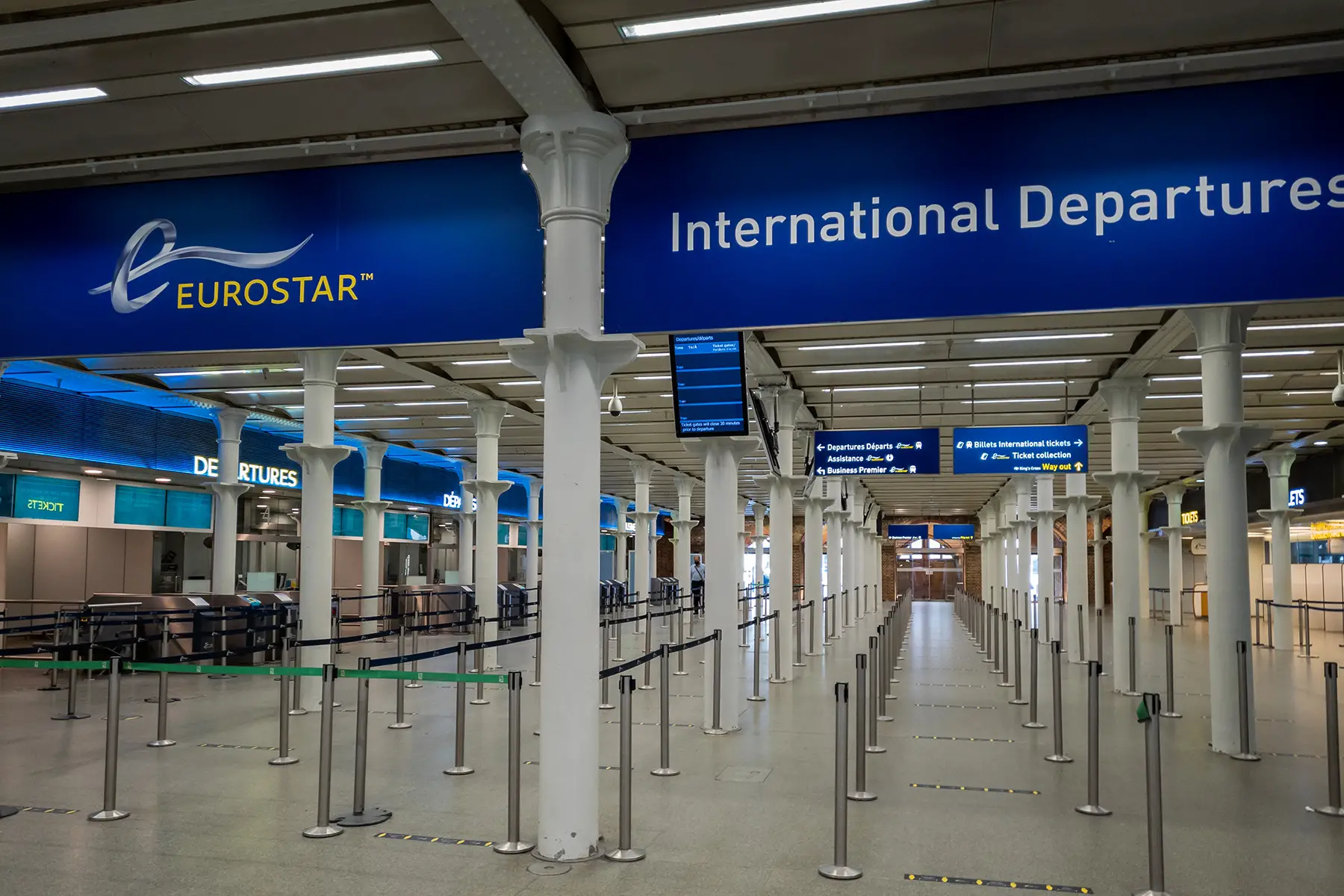If you want to join your family or partner in France and enjoy the French quality of life, work, or even just the wine and cheese, a spouse visa is one of the best ways to move. It includes various immigration statuses that provide the right to work, a quicker route to multi-year residency permits, and – especially for spouses of French nationals – even grounds for French citizenship.
However, not all spouses have the same rights and privileges, even when legally married. These depend on whether you are the spouse of a French, European Union (EU), or non-EU national. Explore your options in the following topics:
- Family visas in France
- VPF visa for partners of French nationals
- Spouses of EU nationals: Membre de famille d’un citoyen UE
- Spouses of non-EU nationals
- Other residency permit categories for non-EU citizens
- Family visa conditions for specific countries
- Short-term visas
- How to apply for a spouse visa
- In the event of divorce or death
- Useful resources
Family visas in France
Joining family in France is a popular route to residency. By the end of 2023, family-related residence permits and provisional documents accounted for 1.3 million of the 4 million issued.
The French consulate is responsible for issuing most visas. However, the Office for Protection of Refugees and Stateless People (Office Français de Protection des Réfugiés et Apatrides – OFPRA) handles asylum applications.
If you decide to move to France to join your family, your options depend on your nationality, your partner’s nationality, and your relationship status. The possible permits include:
- Vie privée et familiale (Private and Family life – VPF) visa
- Membre de famille d’un citoyen UE (family member of an EU citizen) residence permit
- Talent Passport – family
- Salarié détaché ICT – famille
- Regroupement familial (family reunification)
- Other long-stay visas
Each of these spouse visas for France has its advantages and drawbacks, which are detailed below. For advice on your specific situation, it’s worth contacting an expert to guide you through the permit types and requirements.
Types of marital status for French visas
Before diving into your visa application, it’s essential to understand the three levels of partnership in France:
- Married – married couples have obtained a marriage certificate in France or abroad from a governmental authority. Your partner is known as a mari/femme (husband/wife), époux/épouse (spouse), or conjoint/conjointe.
- PACSed – a PACS (pacte civil de solidarité) is a French civil union. The PACS document resembles a prenuptial agreement, in which the two partners (partenaires) decide to what extent they will be legally bound to one another, how to distribute their assets, etc. This is a level below marriage in France – it is a legal relationship established before a notary or a French town hall (mairie). However, it’s a less strong legal bond, and it’s very easy to get “de-pacsed.” Furthermore, inheritance and tax obligations are not automatic, and partners have fewer rights in the eyes of the French immigration authorities.
- Concubinage – This status refers to living together in France. There are very few rights that come from cohabiting without a marriage or a PACS, and it can be hard or impossible to rely on concubinage to gain residence in France. Cohabiting partners are referred to as compagnon/compagne or concubin/concubine.
VPF visa for partners of French nationals
The main visa for joining a spouse in France is called vie privée et familiale, or “private and family life visa” in English. This document is known by its acronym, VPF visa.

The VPF visa grants full work authorization. Initially, it is issued for one year, followed by a two-year extension upon renewal and eventually, a ten-year renewal.
Spouses of French nationals and PACSed partners may be eligible.
Married to a French national
If you get married in France, your marriage is automatically registered with the French civil authorities, and you can qualify for VPF status.
On the other hand, couples who married outside France must register their wedding with the French consular authorities (the French consulate in Los Angeles provides an example of the necessary documents, forms, and process – link in French). Only after completing this procedure can you file for the VPF visa.
PACSed partners of French nationals
PACS partners of a French national can eventually obtain the VPF status as a residency permit (titre de séjour) from the local prefecture (préfecture) in France.
The complication is that French consulates abroad do not issue VPF visas for PACSed partners. The French immigration authorities require both a PACS and 12 months of cohabitation (vie commune) in France before you become eligible for VPF status.
So PACSed partners of French nationals living outside France must start with a different visa. Typically, they receive a long-stay visitor visa (visa de long séjour “visiteur”) for the first year. They can then file for a change of status to the VPF residency permit.
Concubinage with a French national
Vie commune, or living together and sharing financial and housing documents, is not usually grounds to receive VPF status. However, if you have had a child with your French partner, are not married or PACSed, and your child is a French minor being raised in France, you can pursue VPF as their parent (parent d’enfant français).
Spouses of EU nationals: Membre de famille d’un citoyen UE
Partners of EU nationals may be able to receive a Family member of an EU national residency permit (membre de famille d’un citoyen UE). This permit is valid for up to five years, although in some cases, a prefecture initially issues it for one year. It allows for employment and is free of charge.
The membre de famille d’un citoyen UE permit is the only immigration status obtained locally in France. A non-EU spouse of an EU national can arrive in France as a tourist and apply for a residency permit from the local prefecture within the first 90 days of arrival.
Married to an EU national
People married to an EU national must show their marriage certificate with their visa application. If this certificate is not in French, you must obtain a translation from a certified translator located in France.
PACSed partners of EU nationals
It’s also possible to get a membre de famille d’un citoyen UE residency permit on the basis of a PACS. You must have been cohabiting for 12 months, but unlike being the PACSed partner of a French national, you may have lived together in France or abroad.
Concubinage with an EU national
It is technically possible to qualify for a membre de famille d’un citoyen UE residency permit if you can demonstrate, to the prefecture’s satisfaction, proof of five years of cohabitation with your EU partner. However, this is discretionary, and it’s entirely possible that the prefecture agent doesn’t grant you the permit on this basis.
Spouses of non-EU nationals
If you and your spouse are neither French nor EU nationals, you may be able to join them on a type of visa other than those listed above. These include the Talent Passport and the Salarié détaché ICT.
Talent Passport
If your spouse holds one of the subcategories of the Talent Passport, including Talent Passport European Blue Card (for highly skilled employees earning over €54,000 gross annually), you can qualify for the Talent Passport – family status.
This document’s expiration date is attached to that of your spouse’s visa or residency permit. It allows you to work in any employment – ironically, you may end up having more rights than your spouse, as they can only work under the conditions stipulated in their specific Talent Passport visa (e.g., as an employee, entrepreneur, etc.)

This category requires that you be legally married, and you must have a marriage certificate. PACS will not suffice, nor will being in a long-term relationship.
Salarié détaché ICT
The salarié détaché ICT visa category is almost identical to the Talent Passport – it brings highly skilled workers and their families to France. However, this category is for posting or seconding workers who stay on the payroll of their home category.
The salarié détaché category permit is valid for a maximum of three years, which also applies to any accompanying family. After this period, the worker generally has to leave the country. The spouse can receive a salarié détaché ICT – famille status, which, similarly to the Talent passport, allows you to work in any manner.
This category of permit only applies to legally married couples, not to PACSed partners or live-in companions.
Other residency permit categories for non-EU citizens
Other categories of visa and residency permits do not enable you to sponsor your spouse easily and quickly. These types of visas include:
- Entrepreneur
- Salarié (worker)
- Student
- Visitor
- 10-year-card
If you are living in France on one of these categories and want to bring in your spouse, you must go through the process called regroupement familial or “family reunification.”

Immigration Attorney
Daniel Tostado
Insider tip
I never recommend the family reunification visa process to immigrants because it’s long (typically taking 18–24 months) and has a particularly high refusal rate. Therefore, I recommend other routes to France instead, such as the visitor, student, or entrepreneur visa.
If you decide to go through the family reunification process, you must have:
- A valid residency permit in France with a duration of 12 months or longer
- Resided in France for at least 18 months
- An apartment size that is considered “decent,” meaning big enough. For a couple, it needs to be at least 22 m². For each additional family member, you need to add another 10m².
- Sufficient financial resources: at least French minimum wage, known as the Smic (around €17,000 per year in 2024).
It is possible to do regroupement familial sur place, which means carrying out family reunification in France if you and the spouse are already in the country. However, you must have entered the country on a long-stay visa and have married a host spouse in France who qualifies for family reunification. In practice, the conditions for this route are rarely met.
Those who successfully obtain regroupement familial receive the VPF visa.
Family visa conditions for specific countries
Algerian nationals
French immigration law for Algerians is covered by the Franco-Algerian Accord of 1968. This Accord contains all of one’s rights and obligations as an immigrant in France. As such, the Talent Passport does not apply to Algerians.
Algerians can still move to France as the spouses of French or EU nationals or pursue regroupement familial.
British nationals
British nationals could freely move to France and sponsor their spouses until 2021 as EU nationals. Now, those in the UK must file for long-stay visas to move to France. There can be an exception for spouses of British partners already residing in France who already held a five- or 10-year post-Brexit residency permit (called a WARP, Withdrawal Agreement Residency permit). However, this status can be challenging to obtain.
Bilateral treaties
Several countries have specific bilateral treaties with France, including several African countries that were once under French colonial rule, such as Morocco, Tunisia, and Togo. These sometimes have special exceptions to standard French immigration law, which you can read about on the French Ministry of the Interior’s website.
Refugee spouses
Spouses of refugees benefit from a different procedure than regroupement familial. Instead, their procedure is called réunification familiale (which also translates as “family reunification”).
This process requires that the marriage precedes the asylum request. It can apply to those who are legally married or who have been in a civil union. The host spouse must have received a positive decision on their refugee or subsidiary protection application.
Applicants can file for this visa at the French consulate in the country in which they live.
Short-term visas
For short stays in France of 90 days or less, you may only need a short-stay visa.
Those who come from countries that do not require a Schengen visa can enter France for a short stay regardless of their marital status. Nationals of other countries require a Schengen visa.
How to apply for a spouse visa
You can begin applying for your French spouse visa on the France-Visas website. On this website, you can find requirements for specific visas and the application form, which you can fill out online.
Upon completing the form, France-Visas provides a link to book an appointment to file the visa. The website also provides a list of places to submit the documents in each country.
Validating your visa
After you receive your visa and arrive in France, you must validate it with the French Office for Immigration and Integration (Office Français de l’Immigration et de l’Integration – OFII) within 90 days. You can do this on the ANEF website, the digital administration site for foreigners in France.

Depending on the visa category, you may also need to arrange the following formalities through OFII:
- A one-time medical check-up
- Four days of civic training
- Language classes if you do not have any level of French
The French state covers the associated costs.
How much does a French spouse visa cost?
Most French long-stay visas incur the following costs:
- An administrative fee of €99 for processing the application
- An additional booking fee for French consulate subcontractors (such as around $30 to book with the VFS in the US or TLS if in the UK)
- €200 to validate the visa with OFII once in France, plus a stamp duty of €25
For most residency permits, the cost is €225 in “fiscal stamps” (administrative fees), apart from the spouse of EU national residency permit, which is free.
In the event of divorce or death
It’s advisable to speak with a French immigration specialist in the event of a divorce or the passing of the host spouse.
In case of a divorce (or a de-PACS), the spouse generally transitions onto a work residency permit (such as Entrepreneur or Salarié), or onto the long-stay Visitor residency permit.
Useful resources
- Service-Public.fr – information on different visas and permits for France
- france-visas.gouv.fr – start the visa application and track it online
- Étrangers en France – validate your visa and carry out other immigration processes
- OFII – read about the integration procedure when living in France







